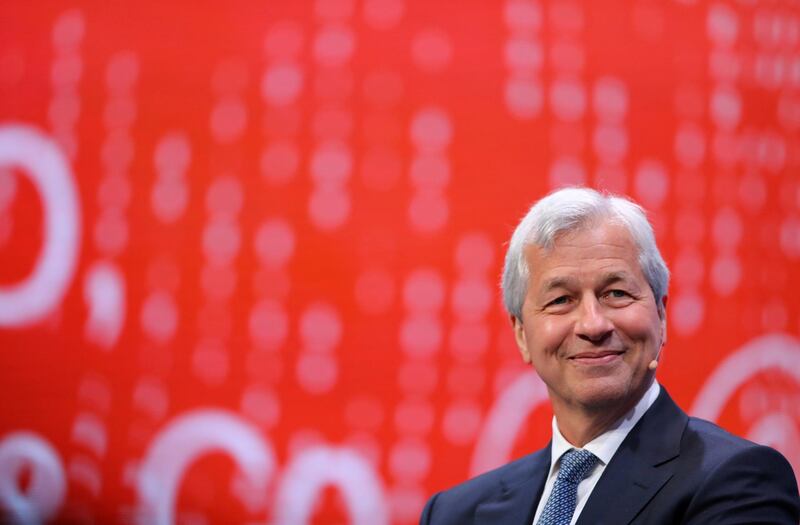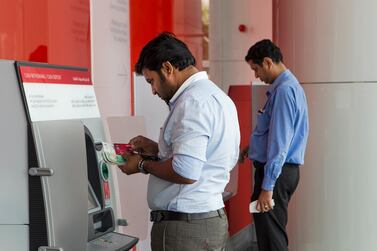Traditional banks have to be better and faster to compete with FinTechs, said Jamie Dimon, chairman and chief executive of JPMorgan Chase & Co.
Speaking at the 42nd virtual edition of Sibos, an annual conference for the global financial services industry, Mr Dimon said customers are willing to pay more for FinTech services such as PayPal, Square and AliPay because they solve pain points quicker and better.
“Some banks are going the way the dinosaurs did. FinTechs were born in a digital world whereas banks weren’t, so the former got a better look at pain points,” he said on Monday.
“Banks are good at creating pain points by making customers sign several forms and documents. We are doing a much better job now at easier, faster and quicker transactions. We've got to do more of it.”
Conventional lenders are investing heavily in digital banking services as the scope for FinTech expands to cater to the demands of an increasingly smartphone-savvy consumer base.
Fan Yifei, deputy governor of the People's Bank of China, told the Sibos conference that the digital economy has become more significant during the Covid-19 pandemic.
"Market participants should utilise smart solutions and seize the opportunity to improve customer experiences," Mr Fan said. "Social distancing has promoted a rapid development of contactless activities such as deliveries, telemedicine and payments, but it has also increased requirements for financial institution services and risk-management capabilities."
He added that contactless activities could fall in a post-pandemic period but habits developed during Covid-19 would help corporates and consumers adapt to a new world.
"We're expecting a hybrid world where online and offline services will evolve together. [However], it is essential to have a strong regulatory framework that can construct and modernise the governance structure in the payments industry as well as support the sustainable development of the industry.
"The business model of the payments industry is growing bigger, more challenging and more complex and regulators must remain vigilant."
During his keynote address, Mr Dimon said the world is currently in the midst of the largest and most unprecedented economic downturn. He pressed for another fiscal stimulus package to ensure a gradual economic recovery in the US and urged stakeholders not to rely on the Covid-19 vaccine alone to drive growth.
“We will recover one day, but we have to go through murkier waters. People tend to get exuberant now, but remember that we are still in the middle of a crisis.”
Meanwhile, Yawar Shah, chairman of the Society for Worldwide Interbank Financial Telecommunication, said the economic toll of Covid-19 is only just unfolding.
“Its impact will reverberate for years to come. But this moment in history is also accelerating positive trends and innovation,” Mr Shah said at Sibos, which is being held online from October 5 to 8.
Mr Dimon blamed governments’ unpreparedness for the “staggering” impact of the pandemic. “The world was unprepared. We usually prepare for disasters and pandemics, but not a pandemic-induced global shutdown.”
Despite the pandemic restrictions, he said April, May, June and July were some of the most active months for JP Morgan across all of its businesses. “We processed $9 trillion worth of money in one day, which is 50 per cent higher than the norm,” he said.
The pandemic has also accelerated the process of digitalisation for banks, with processes that would usually take two years now being implemented in two weeks, Mr Dimon added.
More than 18,000 delegates from 200 countries are participating in Sibos, which was originally scheduled to be held in Boston.







